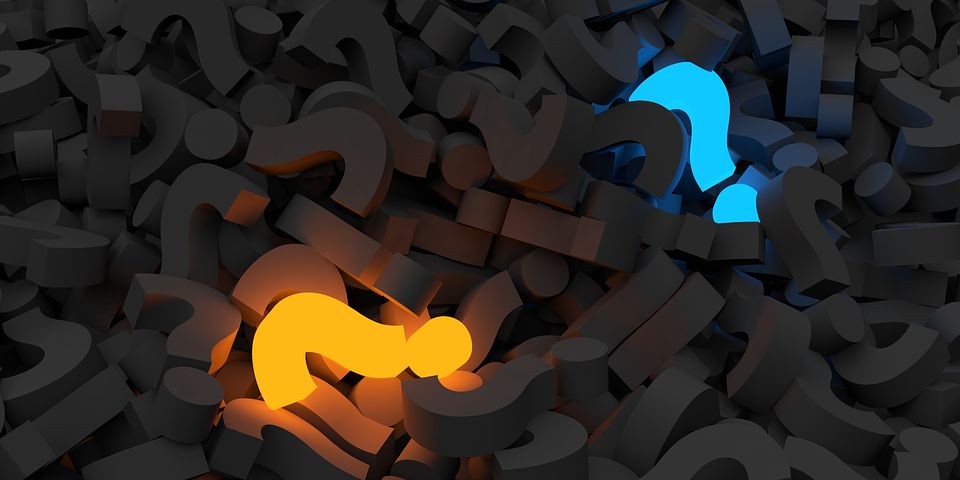
There is a great romanticism about the unknown unknown. It sits there on the edge just beyond our knowledge and understanding. North America, before Columbus sailed there in 1492, was an unknown unknown to Europeans.
Travels can take us to unknown places, and while there, we often find ourselves face to face with cultures and practices that existed so far beyond our imagination that they are simply unfathomable.
The unknown unknown exists beyond our point of reference. When preparing to go off to school for the first time, we know that we are about to explore campus life and dormitories and meeting new people from different walks of life. All those are simply unknowns. It’s what happens beyond those recognized unknowns that make the college experience that much richer and more vibrant. Beyond the unknowns, that’s where we really begin to see something different. It may be wild or tame. Thrilling or relaxing. But it is so incomprehensible to us before it comes into view.
Unknown unknowns aren’t always positive. Dorie Clark, in an article for the Harvard Business Review, was rejected from every doctoral program she applied to. She came to understand that the very quality that made her appealing to previous academic programs – her interest in a wide range of subjects – was the exact quality that made her so unappealing to doctoral programs that required singlemindedness toward a single subject.
For Dorie, who was named one of the top business thinkers in the world by Thinkers50, it was the unknown unknown that created a blind spot that derailed her plans. She developed a three-step plan to help her find the unknown unknowns that could derail her plans.
First, she recognized the need to get an insider perspective. Because of her previous success in academia, it never occurred to her that doctoral programs might be different.
Second, she decided to “war game” potential failures. By assuming that an initiative is going to fail, and then analyzing every potential reason for that failure, she would open herself to creative insights and possible issues that might have been overlooked.
Lastly, she advises looking at implicit assumptions, and trying to debunk them. That oftentimes requires getting a different perspective from someone in a different discipline who can knock the assumption on its side just by looking at it from their different point of view.
Roots of the Unknown Unknown
The late, former Secretary of Defense Donald Rumsfeld is generally credited with coining the phrase unknown unknowns. During a news briefing in 2002, while explaining the limitations of intelligence reports, he said, “There are known knowns. There are things we know we know. We also know there are known unknowns. That is to say, we know there are some things we do not know. But there are also unknown unknowns, the ones we don’t know we don’t know.”
That may sound like a confusing tongue twister but there is a lot of truth in it. It’s hard to find something that we don’t know we don’t know. You may one day accidentally stumble over it, or walk right on past it for decades, never realizing that it was beside you the entire time. And that is exactly what criminals hope for when laundering money.
The Unknown Unknown and Money Laundering
In the world of money laundering, that unknown unknown is the sweet spot for terrorists, drug cartels, human traffickers, and other criminals. The successful ones couch their financial dealings in transactions that are atypical for money launderers. The reason for that is fairly simple.
Law enforcement can recognize traditional money laundering activities. It creates rule-based monitoring techniques that can identify when dirty money is being cleaned through the system, and prevent it. However, those rule-based systems are helpless when trying to combat the unknown unknowns.
They simply aren’t capable of looking beyond their lanes and recognizing anything beyond the standard concealment patterns that they were programmed to uncover.
Finding the unknown unknowns forces law enforcement and the financial institutions tasked with preventing dirty money from flowing through their systems is one of the biggest challenges they face.
The task is daunting. There are thousands of financial transactions that need to be processed every day. Most of those are ordinary. Businesses paying suppliers. Ordinary citizens making payments. Migrant workers sending money back home to their families.
Some are not, and letting those get through not only enables some of the worst crimes taking place to today, but puts banks and financial institutions at risk of tarnishing their reputation and being hit with multi-million-dollar fines that hurt the bottom line and anger shareholders.
Fighting Back against Financial Crimes
For banks to be truly successful in preventing dirty money from flowing through their banks, they need tools that can find the unknown unknowns. They need to identify the anomalies that might not stand out when looking at an individual transaction but raise a flag when compared to the millions of transactions that are carried out every year.
Once banks can find the unknown unknowns, they’ll be in a position to stop the flow of dirty money and significantly hamper the efforts of criminals around the world.
